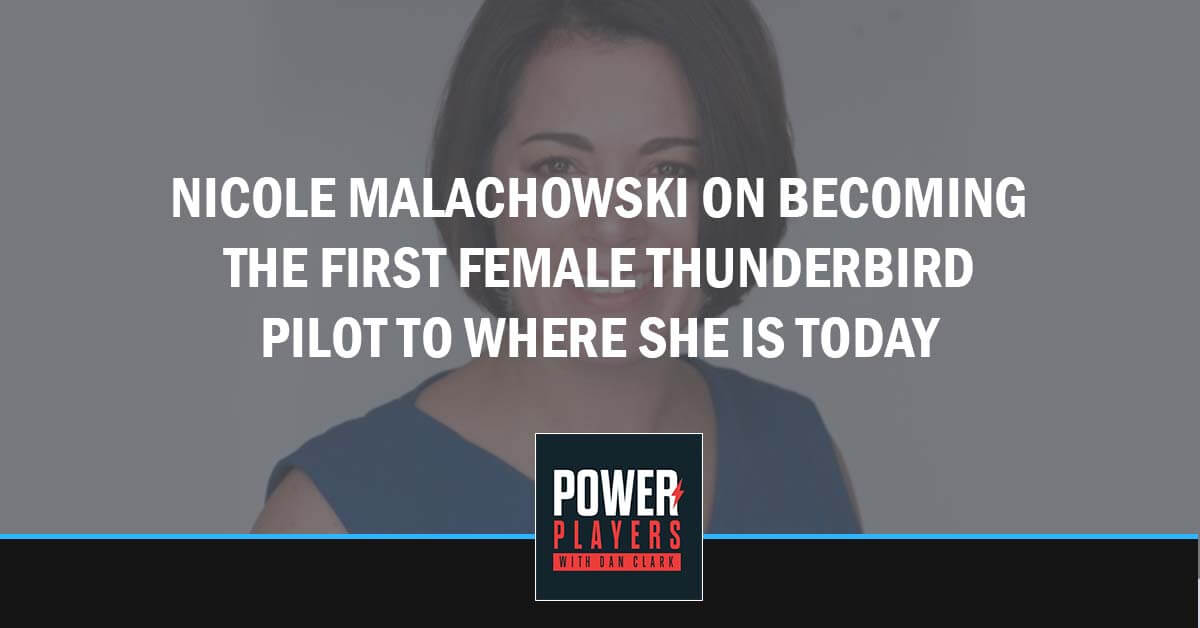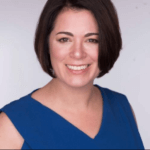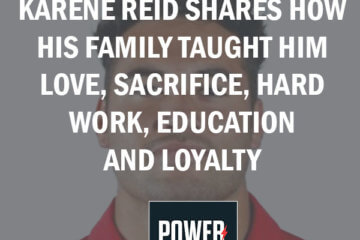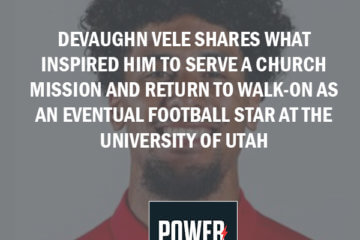Listen to the Podcast Here:

Never be concerned with what other people think you should be doing. In this episode, Nicole Malachowski shares her life and climb to the top of her profession. Nicole was an F-15 driver flying dangerous missions over Iraq. She became the first female Thunderbird Pilot, leading to a career as a White House Liaison, which ended in a serious health challenge. Today, she gives us an inside glimpse of how a woman succeeded in a man’s world and what she is now doing as a motivational speaker!
—
Nicole Malachowski On Becoming The First Female Thunderbird Pilot To Where She Is Today
In this episode, my dear friend, Nicole Malachowski, who was an F-15 driver, flew dangerous missions over Iraq, became the First Female Thunderbird Pilot leading to a career as a White House Liaison, which ended in a serious health challenge, shares her life and climbed to the top of her profession. She is giving us an inside glimpse of how a woman succeeded in a man’s world and what she is doing as a motivational speaker.
—
Welcome to my program. Thank you so much for joining us.
Thank you so much for having me, Dan. I appreciate the rather thorough and truly gracious introduction. Thank you.
Ladies and gentlemen, visualize this woman who has excelled in a so-called man’s world because she took pride in being everything she was born to be and made every one of her assignments genderless and rose to the occasion in an extraordinary way. That brings up the very first P of a power player. Nicole, when and how did you first identify your passion to become not just a fighter pilot and everything you’ve ever done, you’ve exceeded expectations and risen above the norm. When did you first realize that you were that human being who wanted to push yourself to your ultimate capacity and potential as a human being?
I’m pretty lucky in that respect. It was something I felt inside of me from a very young age. At a young age, I realized that passion is something that you feel inside of you. I remember the exact moment that I decided, “I’m going to become a fighter pilot someday.” It was back when I was five years old, circa 1979. Women had started going to pilot training. It was against the law at that time for women to be fighter pilots, but my little five-year-old brain didn’t care. I had grown up in a middle-class American family, very lucky because I had a roof over my head, food on the table and stable family life. That was an opportunity that was afforded me at a young age to have that foundation.
I grew up in a family that did have a military heritage. I remember being a kid, we would go to the Veteran’s Day Parade and different events where the military was being supported or the flag was flying and I would feel something. I would look at people in uniform marching together, this idea of teamwork or being a part of something bigger than yourself. I could see and feel it there. I knew from a young age that serving your country was considered noble and honorable. You combine that with the day my family went out to an air show. It was in Central California. I’m five years old. This aircraft comes screaming by. It’s called the F-4 Phantom. It was the workhorse of the Vietnam War. I started shaking uncontrollably with excitement.
With each challenge, there’s always going to be a flip side of that coin. The flip side of that coin is always 100% opportunity.
You know how you can see little kids get so happy they can’t even control their bodies? I covered my ears because of the jet with loud. I remember smelling the jet fuel and I could feel the power of the engine rumbling in my chest. It was this feast for the senses. At that moment, you took this idea that I felt like I needed to be a part of a team. Even watching the other military parades as a little kid and then combining it with this jet, I was like, “That’s it. I’m sold. I’m going to become a fighter pilot someday.” It was all those feelings that spoke right to be part of my heart that made me go, “This is something you can do.”
Being a fighter pilot is being a fighter pilot and then you take it to the next level as a Thunderbird pilot. The distinction that always irritates me is that you were the first female fighter pilot to be selected. That’s history-making. You were every bit as qualified as every other male or pilot who flew at the Thunderbird. Let’s talk about how your passion to be a fighter pilot took you to fly at that extraordinary level when you were invited to become part of the Thunderbirds.
Explain to us how at some point, you learned about trust and how close your wing gets her together in the diamond formation as you get to the end of your show season. Talk to us a little bit about the difference between being a fighter pilot, which is way cool and then taking it to the next level, which your whole life has been about to become a Thunderbird pilot.
I always remain very grateful to the Air Force for all the opportunities that it has provided me. I had served in three operational F-15E fighter squadrons, which meant I would align pilot of flight lead, an instructor pilot in the F-15E. I found myself at this place in my career where I had honestly achieved every certification or qualification you could have as a line pilot and an instructor pilot in the F-15E and I was looking around for the next challenge. I guess that hits a lot on what you’re asking here is I’ve never been someone who was satisfied with the status quo just because you achieved a certain level or maybe some form of recognition, whatever that looks like in someone’s career field.
That doesn’t mean you stop because what put food on your plate yesterday isn’t going to put some on your plate today. I was always looking to challenge myself. I’ve never been concerned with what other people thought I should be doing or if others thought I had achieved enough or maybe that next step was too big or gnarly for her. It’s not been something that’s ever occurred in my mind. Even as a younger kid, I was always focused on, “You’ve done one thing. How can you challenge yourself? What’s the next thing you could try?” I like gnarly things.
It’s okay to fail, too, at these gnarly things are in pursuit of these goals, which has happened to me along the way. I found myself mid-career, having had this wonderful experience as a fighter pilot, having led peers in combat. I was looking around going, “What could be this next challenge as far as being a pilot and taking my flying, teamwork and leadership skills to the next level?” That’s where this idea of applying to the Thunderbirds came into my head. In all honestly had never considered the fact that they hadn’t had a woman before because that’s irrelevant.
There was this challenge out there to do something different or elite to represent everybody else in the Air Force with the honor and dignity that I knew they deserved because I had served with them for so many years. I thought, “Why not me? What’s it going to hurt to put my hat in the ring?” The best way to not be selected to be a Thunderbird pilot is to not apply.

First Female Thunderbird Pilot: What put food on your plate yesterday isn’t going to put some on your plate today. Challenge yourself. What’s the next thing you could try?
I realized that the worst thing that could happen if I wasn’t selected was that I would get to stay flying the F-15E Strike Eagle with the most amazing airmen of my career that I’d already been serving with. There was no hardship or negative that was going to come out of this. It was only by challenging myself to have the courage to apply and try something new that I was able to become a Thunderbird pilot.
Let’s relate that to so many individuals who lost their job because of downsizing or going through the COVID-19 so-called crisis. A crisis does not make or break the man or woman that you character within. Many people maybe have that mindset or mind block, “I don’t want to go through new training. I want my life back. We need to return back to how it was the old normal instead of the new normal.” An F-15E with the stick a little bit more wobbly using my civilian terminology and then you happen to retrain an F-16 with fly-by-wire where your right-hand grip only moves an eighth of an inch and you can’t even tell you’re moving it.
Talk to us about the mental, emotional and physical training that relates to anybody out there who says I’ve lost my job and they’re reluctant to go about getting new training so they can be reemployed. That’s a limiting belief that we need to deal with. You’re an expert in that. Teach us about what the process was for you to go from a stick that moves to fly-by-wire with a stick that’s so stable it scared the heck out of me when I had that chance.
Challenges and hardships are going to come along in all of our lives. I always believe that there is always going to be a flip side to that coin. The flip side of that coin is 100% opportunity, an opportunity to reinvent yourself and to innovate a new way of doing things for your company or for those processes. You talk about COVID-19. There is no going back. This is a complete crucible experience that is fundamentally changing who we are as individuals and teammates and who we are and what our organizations and companies look like.
Anybody who thinks we’re going to go back is missing the point that we have been middle towards something bigger, better and stronger, which means we have got to be forward-looking in reinventing ourselves. To your point, the F-15E Strike Eagle is formed by hydraulics. The stick is between the knees and it does have a lot of range of movements. The very first time I flew an F-16, it was a side stick with very little, almost imperceptible movement because it’s fly-by-wire. I remember the first time I sat in that F-16, I was in the final five, what we call finalists to be selected for the Thunderbirds.
There were two positions open for five of us pilots. The other pilots had all been F-16 pilots their entire careers. Here I am standing there as an F-15E fighter pilot with no experience in an F-16. They said, “Get into this jet.” It was a two-seater. I had a Thunderbird instructor pilot in the front seat, “You’re going to go out there and fly this F-16 on the wing of Thunderbird 1 and show us what you got. I remember thinking in my head, “How in the world am I going to do this?” Everybody else is an F-16 pilot. I’m not. We get in that jet and we take off. The instructor pilot, Scottie Zamzow, is a phenomenal person.
Don’t ever let the jet fly you. You fly the jet.
He puts the gear up. I remember him saying, “You have the jet.” I had no choice at that moment but to grab that F-16 fly-by-wire side stick and to start flying that plane. I was wobbly and jerky at first. It felt awkward. It wasn’t the same muscle memory that I was used to. Remember, the foundational of flight is exactly the same, regardless of what aircraft you were in. I had to fall back on my foundational discipline knowledge of how airplanes fly. The throttle goes up and you go faster. You pull the throttle back, it goes slower. You pull the stick up, you climb. You push the stick forward, you descend.
While the aircraft themselves were fundamentally different, those foundational characteristics, the things I had disciplined on over the years, served me well at that moment. That’s what people’s minds need to be at as they’re transitioning to an unknown future as they have the discomfort of reinventing themselves. They have a lot of great strengths and skills that got them to where they are. The question is, how do I reimagine those skills in this new world just like I reimagined those skills in that new jet?
To throw in a little personal experience, I remember when I had my ride with the Thunderbirds and we did all the airshow maneuvers, we landed and I said to my pilot, “How did we fly this magnificent F-16?” He said, “By feel.” I said, “What do you mean?” He said, “You become the plane.” I said, “What do you mean?” He said, “When you climbed up the ladder and slid into the cockpit, did you strap into the F-16 or did you strap the F-16 on to you?” I never forgot that lesson. That’s exactly what you taught us.
I love the way that he described that to you. We are the masters of our own lives. We are the masters of our mindset and we are the masters of that aircraft. When I was twelve years old, I took my very first, fully instructional formal flight. It was in a Piper Aircraft. I remember as we started to take off, the pilot said to me, “You have the aircraft for the takeoff, put the throttle full forward and I’ll help you when it’s time to rotate the aircraft for takeoff.” I remember taking the runway, I put my hand on the throttle and I started slowly pushing the throttle forward.
At that moment, this grown man grabbed my hand firmly and slammed my hand forward, so the throttle went full throttle fast and rapidly. I remember I jumped in my seat. I was scared. I had adrenaline. I thought, “Am I in trouble? What happened?” We finally got airborne. When we got on the ground, he said, “Do you remember when I put my hands on that throttle on your hand and I slammed it forward?” I was thinking as a twelve-year-old kid who was about to get tears in my eyes. I thought I was in trouble. He says, “Don’t ever let the jet fly you. You fly the jet.”
I’ve never forgotten that. I didn’t forget that in those moments when I was learning to fly T-37, T-38, F-15E and F-16. It’s a great metaphor for life. We can sit here passively and let this crisis happen to us. We can sit here and reminisce or ruminate on the past, but that is not going to propel us forward. You have to fly this crisis, the pandemic coronavirus, whatever you want to call it or else it’s going to fly you and which side of that are we on?
That brings us to the second P, Preparation. Who inspired you to prepare and what did you specifically do? What I need you to do, my friend, because you were in the White House twice and your responsibilities were so extraordinary, in my mind, you slid into the White House and you flew the White House, but you’re teaching the world is that you’re the same off-stage as you are on-stage, you’re the same in the jet as you are out of the jet.

First Female Thunderbird Pilot: In combat, you can plan all you want but the enemy always has a vote. Things are always going to change. You have to think through all of the contingencies.
Talk to us generally speaking about what prepared you to do all the other things in your life, other than flying a fighter jet and the similarities of what you learned flying a fighter jet, flying with the Thunderbirds at the highest level. How did that apply to your special assignments in the White House, which you can describe a little bit?
I had a unique Air Force career. I worked in the White House the first time, 2008, 2009 at the office of the president-elect. I’ve been in the office for the transition between President Bush and President Obama, which was a historic moment and an extraordinary learning opportunity. Fast forward to around 2015, I found myself working essentially as the military advisor to then, First Lady Mrs. Michelle Obama. You think to yourself, “How does a fighter pilot, who flew in combat, someone who was a Thunderbird end up working at the White House? What are those parallels?” There is a lot.
Preparation to me is all about having discipline. Discipline in how you utilize your time and resources, which include your individual energy but also the outside resources that are available to you. Discipline is all about making sure that you have focused on what’s important that you have taken the time to prioritize things. The same thing that happens in the cockpit is the same thing that happens when the President of the United States walks into a room.
You’ve got to be disciplined in what you’re trying to do, focused on the priorities of what’s going on in that moment. Whether we’re flying an aircraft or you’re running a national-level initiative from the east wing of the White House, it all comes down, in my mind, to visualization. People who appear to be the most prepared are the ones who’ve set aside time to do what we in the Air Force is called chair flying. Professional elite athletes do this as well.
We sit down, you close your eyes and you go through the motions step-by-step in real-time of what’s going to happen on that combat mission of each individual radio collar stick movement and the Thunderbird airshow. Each step of a process, when you’re trying to plan an event that the President and the First Lady are going to be at, you take the time to visualize and chair fly it until it has become muscle memory. You can execute it before the moment has ever arrived.
You have to do that in football. You put yourself in the position and you study the game film and when that team gets in that particular formation and they run this specific play, come around game time, you see them in that formation and you adjust so that you have a competitive advantage. I know they’re going to come here based on my research and my academy report.
Character comes down to integrity to yourself, and integrity is all about maintaining fidelity to the whole.
You brought up something so profound. How do you prepare yourself to respond to rapid change because so many people who are not succeeding and thriving through the Corona situation were not prepared before it occurred? What you’re talking about is we need to prepare ourselves. When we’re prepared, we shall not have fears. Is that what you’re teaching us?
One of these things we talk about in preparation is to plan for contingencies and changes. You talked about it in terms of a football game. You look out there, you see the team, you know what the probability of the next play is going to be, but you also know that it’s never 100%. In war, we always talk about flying in combat. You can plan all you want, but the enemy always has a vote.
Things are going to change. When you’re doing this preparation, visualizing or chair flying, you have to also think through all of the contingencies. Just because a football play is 90% certain or just because an intelligence report in combat is 95% certain, doesn’t mean that the inevitable and the unexpected can still come along.
Trying to plan for those contingencies is important. I remember when I would teach a young lieutenant how to fly the F-15E Strike Eagle. Before we would go fly, we would talk about different emergencies and it was always random. The students would sit there going, “I wonder what the instructor is going to ask me contingency-wise.” One of my favorite things to ask the student was, “When do you make the decision to eject from the aircraft?” Oftentimes, they go down this list. “I’ll eject if I’m not at the right altitude. I’ll eject if my airspeed is not right. I’ll eject if I have a catastrophic engine failure.”
I would remind them that that’s not the answer. You make the decision to eject before you ever take off. When that contingency happens, when the football team makes a different play, when the enemy on the ground in combat does something you didn’t expect, you’re able in an agile fashion to shift with that. Practicing and thinking through those contingencies is important. I started formally flying when I was twelve years old. I had a full Air Force career, thousands of hours. I never, not once, not in peacetime, not in combat or not as a Thunderbird pilot, it doesn’t matter. Not once did I ever fly a mission or a story that went exactly the way I planned it.
Expecting from the get-go, having the right framework and the mindset that states change is inevitable. The only thing that connects all of us, regardless of our backgrounds and industry, is that the ground beneath all of us is constantly shifting. Controlling how you react at that moment is vital. If you take it with discipline and focus, then you can project calm to yourself, teammates and people around you who are depending on you for that leadership in a crisis situation we’re seeing.
This brings us to the third P, Pursuit of your passion. I breezed over the medical release that you were experiencing because of a tick-borne illness. Everything you’ve already taught us is you’ve been prepared and you’re practicing what you preach and preaching only what you practice when a crisis does not make or break the man or woman for those are two characters with them.

First Female Thunderbird Pilot: You make the decision to eject before you ever take off. When that contingency happens, you’re able to shift with that in an agile fashion.
As we wind down, talk to us about what happened to you with your medical illness, your challenge and why all of us who know you continuously admire you because you’re responding to this challenge and change in your life just like you did in every other aspect of your life. It will be the answer to preparation and how you’ve been consistent in your attitude and performance in everything you do.
Thanks for the opportunity to talk about tick-borne illness. I was a hard-charging officer, a full bird Colonel, a fighter pilot. I was physically, mentally and emotionally fit. All of a sudden, my body started failing me. Without going into details that would take forever, I started feeling ill. I had the flu all the time when I was the commander of a fighter squadron back in 2012. Over the next four years, doctors would struggle to figure out what was wrong with me.
In many cases, it was suggested to me that it was either all in my head or that maybe because I’d been a successful woman in a male-dominated career field that somehow the stress was getting to me, maybe it was time to retire, etc. but inside, I knew it wasn’t true. You talk about this character. Character comes down to one thing, in my opinion only and that’s integrity to yourself. We talk about the term integrity, as far as telling the truth or being honest, which is all cool and correct.
If you Google the word integrity and you look at definition number 4 or 5 that comes up on a website, you’ll see it’s about maintaining fidelity to the whole. When you maintain fidelity to the whole, who you are, what you value, why you prioritize things the way you do, I honestly believe you can endure any crisis. By maintaining integrity to myself, I found my way through this four-year medical odyssey, which by the summer of 2016 had left me completely disabled 100% dependent on other people for my activities of daily living.
I went from a fighter pilot flying high to someone who was bedridden 22 plus hours a day, unable to speak, read and write and unable to walk safely. This happened. You can’t make this up. The day of my medical retirement came down and I was at home. After 21 years of honorable service, no ceremony, nothing. I got my retirement certificate in a Manila envelope. I remember having this moment, this pity party and I’m thinking, “I can’t read and write. I can’t work full-time, who’s going to hire me. What is my contribution to society? If I’m not a fighter pilot or an officer, who am I outside of this uniform? How do I provide for my family?”
Yield to overcome.
All of this self-doubt was raging around. I sat there by myself one day in my living room and these words came to my head, “Yield to overcome.” Just like yield notes position in certain times during a dog fight in order to get the upper hand on the enemy, that’s what I needed to do. By accepting what was happening to me, I could reinvent myself and move forward. I laid there. Once I was finally accurately diagnosed and I started, which was two years’ worth of treatment and rehab to get where I am, I realized, “You’re a fighter pilot. You’re not asking yourself the right questions. It’s not what are all these things I can’t do anymore because of my illness. The question is, what can I do because of my illness?”
I had over this therapy. I regained my ability to speak. I thought, “What job am I going to do? I’m not in the military anymore.” I know you got a good sense of humor. I tell people, “I became a professional speaker because I got nine months’ worth of words saved up and I got to get them out.” The truth was that I have laid in bed unable to communicate with people with nothing but my own head. I had to ask myself, “Who are you?” It was never that I was supposed to be a general in the Air Force. It was never that my legacy was just to be a fighter pilot or an officer.
My path was to be right where I’m at, which is as a patient advocate on the national level for other people with this illness, as a public speaker, reminding people that they can overcome adversity and challenges with the right mindset. Standing up there is an example of what that looks like. Yield to overcome was about accepting and moving forward.
As we wind down with every one of my A-listers, which you’re at the top of so far, you’re so amazing. I ask you one last question. Professor Randy Pausch was the one that coined the speech title Last Lecture. If you had one day to live, if you could consolidate your message as a professional speaker and an upcoming international bestselling author, what is your one message to the world that you would leave us with?
Only you get to define success for yourself. Don’t let anybody else, paradigm or organization define what success looks like for you. Maintain integrity to who you are.
There you have it, folks. This is my guest, Nicole Malachowski. As we always say at the conclusion of my show, remember my friends, when you finally decide to be a power player, your power play begins in you just like Nicole has been teaching us. Until next time, quantify your takeaway and go make a power play. Thank you so much, Nicole. I appreciate you so much. Everyone in the world needs to watch for her new book release. If you are ever in need of amazing public and professional speaker of every level, please think of Nicole Malachowski. Thank you, Nicole, for joining me.
Thank you, Dan. Thanks for the chance to chat with you again, my friend. I appreciate it.
God bless you. You’re amazing.
Thank you. You are, too. Take care.
Thanks.
Important Links:
About Nicole Malachowski
 First Woman Thunderbird Pilot, Combat Veteran, Fighter Squadron Commander. Pioneering, 21-year USAF veteran with combat experience in Iraq and Kosovo Commanded an F-15E fighter squadron White House Fellow and adviser who held posts at the Pentagon Inspires audiences to succeed beyond what they imagine Col. Nicole Malachowski, USAF (Ret.) defies stereotypes. Yes, she was a jet fighter pilot, but if you think you know her based on that, you’d be wrong. A leader, a combat veteran, the first woman pilot on the Thunderbirds Air Demonstration Squadron, a White House Fellow, and an inductee into both the National Women’s Hall of Fame and the Women in Aviation International Pioneer Hall of Fame, Nicole’s distinguished 21-year Air Force career exceeded her wildest dreams. But the dream came to an end when a devastating tick-borne illness left her struggling greatly to speak or walk for almost nine months. An indomitable spirit, Nicole fought back against overwhelming odds and prevailed. Drawing on stories from her career and personal life, Nicole inspires audiences to rethink the challenges they face every day. She urges them to go beyond resilience and become resurgent. Nicole’s empowers people with three key beliefs: failure and risk is the price of entry for achieving something great; sometimes you need to yield to overcome; and her personal mantra – “nobody wants to lead a scripted life.”
First Woman Thunderbird Pilot, Combat Veteran, Fighter Squadron Commander. Pioneering, 21-year USAF veteran with combat experience in Iraq and Kosovo Commanded an F-15E fighter squadron White House Fellow and adviser who held posts at the Pentagon Inspires audiences to succeed beyond what they imagine Col. Nicole Malachowski, USAF (Ret.) defies stereotypes. Yes, she was a jet fighter pilot, but if you think you know her based on that, you’d be wrong. A leader, a combat veteran, the first woman pilot on the Thunderbirds Air Demonstration Squadron, a White House Fellow, and an inductee into both the National Women’s Hall of Fame and the Women in Aviation International Pioneer Hall of Fame, Nicole’s distinguished 21-year Air Force career exceeded her wildest dreams. But the dream came to an end when a devastating tick-borne illness left her struggling greatly to speak or walk for almost nine months. An indomitable spirit, Nicole fought back against overwhelming odds and prevailed. Drawing on stories from her career and personal life, Nicole inspires audiences to rethink the challenges they face every day. She urges them to go beyond resilience and become resurgent. Nicole’s empowers people with three key beliefs: failure and risk is the price of entry for achieving something great; sometimes you need to yield to overcome; and her personal mantra – “nobody wants to lead a scripted life.”


